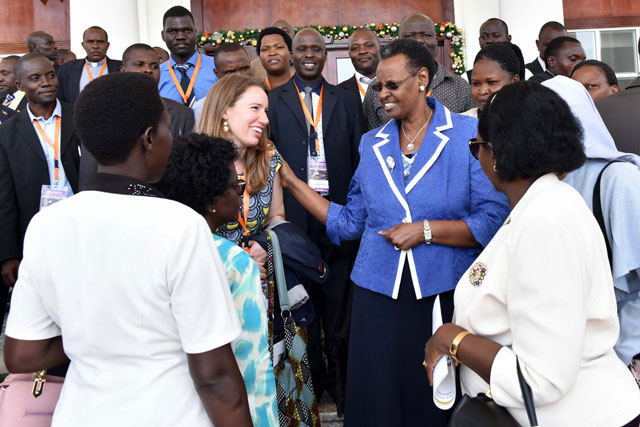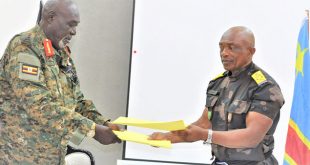
Kampala, Uganda | THE INDEPENDENT | Educationists are demanding for a review of the National Language Policy.
The 2007 National Language Policy mandates District Language Boards to promote the use of the local languages in primary schools and improve literacy in the district.
However, educationists say that the policy has neglected African cultural language preservation.
They want the policy to also consider one of the local languages which is dominantly spoken by all Ugandans as a National language.
Educationists raised the demand on Wednesday during a Public lecture at Kabale University under the theme “Promoting itch education in institutions of higher learning in Uganda”.
Rev. Canon Prof. Emmanuel Muranga, the former Principal of Bishop Barham University College, says that establishing a language that is predominantly spoken by Ugandans and be turned into a national language is long overdue.
Muranga argues that English only favours academicians while Kiswahili language is favoured by security officials especially the police and army. Muranga also says that Kiswahili language is still being recognized as a language of oppression since it is mostly spoken by security officials.
Amon Kitooke, the Heritage Programme Officer at the Cross-Cultural Foundation of Uganda says that English should instead be the official language for Uganda but not a national language.
Dr Francis Akena Adyanga, a lecturer in Faculty of Education at Kabale University says that the review of the policy is important because most of the local languages have been adulterated due to immigration, modernization and introduction of western education.
Akena says that it is time for all custodians of culture and the government to protect Uganda’s local languages through revising the policy and creating a National language out of a local language.
Dr Sultan Juma Kakuba, a senior lecturer and head of political science section at Kyambogo University says that failure to review the policy has been caused by an increasing gap between academic institutions and the government on policy formulation and implementation.
Kakuba says that it is still a very long journey for the government and policymakers to understand that it is necessary to come up with a program that preserves Uganda’s cultural identity.
Innocent Byaruhanga, the Assistant Commissioner of Family Affairs at the Ministry of Gender, Labour and Social Development says that despite being aware of the importance of National Language policy, the ministry cannot revise it without support from other arms of government and policymakers.
Byaruhanga says that they have always been frustrated by ministry of Finance which declined to provide funding on claims that such policies are not profitable.
 The Independent Uganda: You get the Truth we Pay the Price
The Independent Uganda: You get the Truth we Pay the Price



